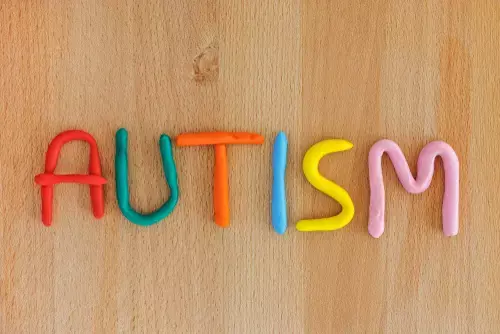- Home
- Medical news & Guidelines
- Anesthesiology
- Cardiology and CTVS
- Critical Care
- Dentistry
- Dermatology
- Diabetes and Endocrinology
- ENT
- Gastroenterology
- Medicine
- Nephrology
- Neurology
- Obstretics-Gynaecology
- Oncology
- Ophthalmology
- Orthopaedics
- Pediatrics-Neonatology
- Psychiatry
- Pulmonology
- Radiology
- Surgery
- Urology
- Laboratory Medicine
- Diet
- Nursing
- Paramedical
- Physiotherapy
- Health news
- Fact Check
- Bone Health Fact Check
- Brain Health Fact Check
- Cancer Related Fact Check
- Child Care Fact Check
- Dental and oral health fact check
- Diabetes and metabolic health fact check
- Diet and Nutrition Fact Check
- Eye and ENT Care Fact Check
- Fitness fact check
- Gut health fact check
- Heart health fact check
- Kidney health fact check
- Medical education fact check
- Men's health fact check
- Respiratory fact check
- Skin and hair care fact check
- Vaccine and Immunization fact check
- Women's health fact check
- AYUSH
- State News
- Andaman and Nicobar Islands
- Andhra Pradesh
- Arunachal Pradesh
- Assam
- Bihar
- Chandigarh
- Chattisgarh
- Dadra and Nagar Haveli
- Daman and Diu
- Delhi
- Goa
- Gujarat
- Haryana
- Himachal Pradesh
- Jammu & Kashmir
- Jharkhand
- Karnataka
- Kerala
- Ladakh
- Lakshadweep
- Madhya Pradesh
- Maharashtra
- Manipur
- Meghalaya
- Mizoram
- Nagaland
- Odisha
- Puducherry
- Punjab
- Rajasthan
- Sikkim
- Tamil Nadu
- Telangana
- Tripura
- Uttar Pradesh
- Uttrakhand
- West Bengal
- Medical Education
- Industry
Excessive Weight gain during pregnancy increases autism risk in children: Study

USA: Increased weight gain (more than recommended levels) during pregnancy elevates autism risk in offspring, a recent study in the journal Obesity has found.
Ka He, Columbia University Irving Medical Center, New York, New York, USA, and colleagues aimed to quantitatively examine the association between gestational weight gain (GWG) and risk of autism spectrum disorder (ASD) in offspring.
The researchers searched the online databases for studies of excessive or inadequate GWG as compared to the recommended GWG in relation to ASD risk in offfspring. Measures of the association from primary studies were pooled using a meta‐analytic approach and expressed as weighted odds ratios (ORs) with 95% CIs.
In total, nine studies were identified including 323,253 participants with 4,135 cases of ASD from five cohort studies and 1,462 cases and 3,265 controls from four case‐control studies.
Key findings of the study include:
- Evidence from cohort studies indicates that both excessive and inadequate GWG was significantly associated with a higher risk for ASD in offspring.
- The pooled OR of ASD was 1.10 for excessive GWG and 1.13 for inadequate GWG using recommended GWG as the reference.
- Evidence from case‐control studies suggests that excessive GWG (1.38) but not inadequate GWG (0.87) was significantly associated with a higher risk for ASD.
""Because autism spectrum disorder (ASD) is estimated to affect approximately 1% of people globally, identifying modifiable risk factors for ASD is of great public health significance," wrote the authors.
"Our findings from the meta-analysis have supported that gaining weight outside the recommended GWG is associated with a higher risk for ASD in offspring," they concluded.
"Although the underlying mechanisms by which gestational weight gain affects neurodevelopment of offspring are still unclear, it has been suggested that excessive gestational weight gain may induce disturbed blood leptin signaling in offspring, which may consequently lead to adverse neurobiological conditions," the researchers wrote. "[Inadequate gestational weight gain] may be considered as a marker of suboptimal nutritional status of the fetus, and nutrient deficiencies have been linked to poor neurodevelopment and ASD risk in children."
The study, "Association Between Gestational Weight Gain and Autism Spectrum Disorder in Offspring: A Meta‐Analysis," is published in the journal Obesity.
DOI: https://onlinelibrary.wiley.com/doi/abs/10.1002/oby.22966
Dr Kamal Kant Kohli-MBBS, DTCD- a chest specialist with more than 30 years of practice and a flair for writing clinical articles, Dr Kamal Kant Kohli joined Medical Dialogues as a Chief Editor of Medical News. Besides writing articles, as an editor, he proofreads and verifies all the medical content published on Medical Dialogues including those coming from journals, studies,medical conferences,guidelines etc. Email: drkohli@medicaldialogues.in. Contact no. 011-43720751


